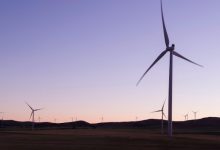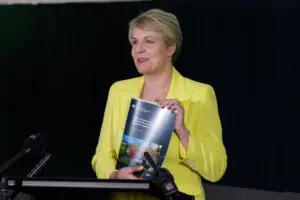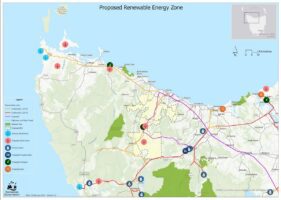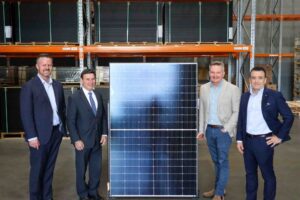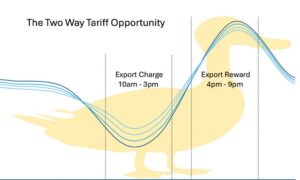French renewable energy developer Neoen has won approval from the NSW Independent Planning Commission for a 192 MW, $373 million wind farm in the New England region that had met strong opposition from members of the local community.
The Thunderbolt wind farm, the first stage of a major proposed renewable energy hub that may also include a solar farm and a big battery, is located east of Tamworth, and about 30 kms south-west of Uralla, and is one of a number of renewable and storage projects that has met opposition in the region.
The Thunderbolt project was approved earlier this year by the NSW state government planning department, but was automatically referred to the IPC because there were more than 50 objections, including from two local councils.
The IPC said in a statement on Wednesday that the approval was subject to a number of conditions, including a maximum tip height of 260 kms, vegetation screening for all households within 5.1 kilometres, and major road upgrades.
It is one of a flurry of new planning approvals by the IPC, following the 300 MW Bowmans wind farm in February, and the Glanmire, Oxley and Glennellen solar farms in December and January.
Delays in planning approvals are cited as one of the biggest for the renewables industry, and its ability to build enough capacity to replace the state’s ageing coal fired power stations.
But it has become a major political issue, with the federal Coalition vowing to stop new wind, solar and battery projects, keep coal fired power stations open, and push for nuclear.
They have been instrumental in rallying local opposition to new projects. The local federal MP Barnaby Joyce has described wind turbines as “filth.”
Neoen is regarded as one the most successful developers of renewables and storage in Australia, and its assets include the Hornsdale wind farm (pictured above), the neighbouring big battery, the Victoria big battery, the Western Downs solar farm and the new Collie battery now under construction – all of which have or will hold the title of the largest of their type.
Neoen’s plans for Thunderbolt include a wind capacity of up to 380 MW, a 120 MW solar farm, and a 400 MW battery with multiple hours of storage, but the IPC approval only applies to the initial wind farm stage, and the final design for the second stage may change.
The 32-turbine facility – which is to built next to an existing major transmission line – is to built over two properties, one running sheep and another cattle, which both landowners will continue to do.
It was opposed by some locals on a number of different fronts, including concern about visual amenity, the impact on roads, water use, and the impact on native vegetation and local fauna, including koala habitat and the Bell’s turtle.
Neoen last year boosted the community benefit sharing proposal, lifting the payment to $160,000 a year from $100,000, and sharing equally between the Tamworth and Uralla councils. It has offered neighbours within 3.5km to be part of a neighbour benefit-sharing scheme with annual payments.
“We are excited to have received development approval today for our Thunderbolt Wind Farm, which is ideally located in next to an existing 330kv transmission line in NSW’s New England Renewable Energy Zone,” Neoen’s state leader in NSW Emily Walker said in a statement.
“We would like to thank our host landowners, Tamworth Regional Council, Uralla Shire Council and the communities of Kentucky and Uralla for their support.
“We also appreciate the hard work and dedication of the teams at DPIE and EnergyCo. We look forward to delivering positive outcomes for the local economy and community, as well as to the contribution Thunderbolt will make to NSW’s energy transition.”
The IPC said its development consent that the project is “consistent with applicable strategic planning, energy policies and frameworks and relevant statutory considerations.”
Opposition to the project was based on a number of issues, including opposition to the use of renewable energy itself, the declaration of New England as a renewable energy zone, the impact on fire fighting and even “blade throw.”
The New England region will also host the Hills of Gold solar farm, which has also received planning department approval, but which is also being assessed by the IPC.
Origin Energy has also bought a 7690-hectare sheep and beef property in the region as a prospective greenfield wind development opportunity, and in February bought two wind and solar projects near the town of Walcha that it also wants to develop.
On Wednesday, Origin announced that it had hired Adam Marshall to join its government relations team. Marshall is the former state member for Northern Tablelands for the Nationals, which lies within the New England region, and is a former secretary for renewable energy in the state Coalition government.
Ne
Neoen has been approached for comment.

